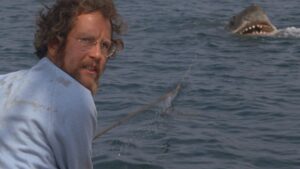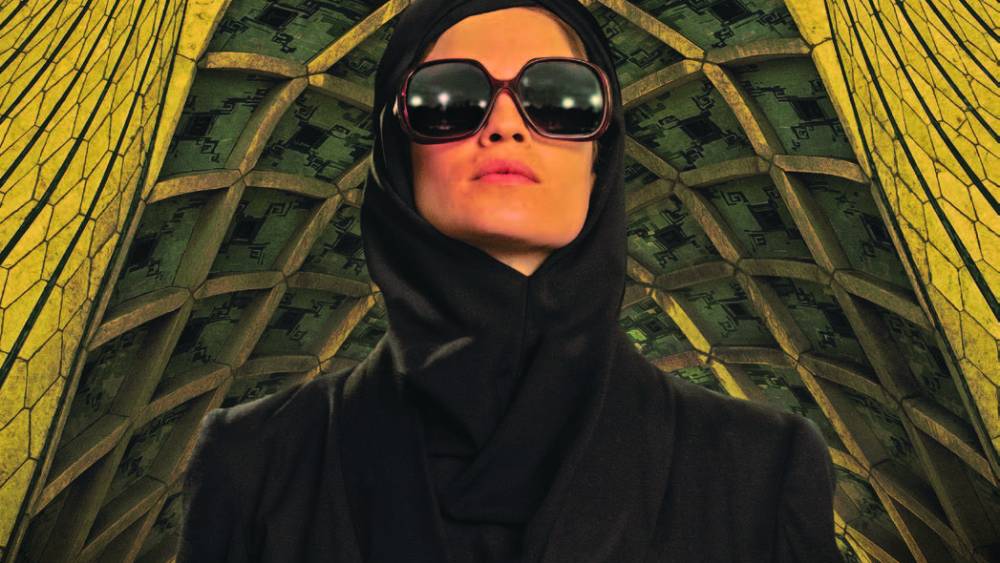Already weakened in the aftermath of the Oct. 7, 2023 attacks, Israel’s once vibrant film and television industry has been halted as producers and filmmakers cope with the escalation of war with Iran.
Many of them, who are based in central Tel Aviv, have had their lives turned upside down and their homes damaged. Since the Islamic Republic of Iran initiated its retaliative military action against Israel — following the latter’s attack on Iran’s nuclear program — on June 13, around 350 missiles have been fired in Israel, killing at least 24 people, according to estimates by the country, which is under a state of emergency through June 30.
“Right now, nobody is working, all the industry in on hold. We’re waiting for things to calm down,” says Adar Shaffran, the head of the producers’ association in Israel. He points out the onslaught of strikes is more “frightening than all the other times” that Israel has been attacked “because the Iranian missiles are very big.” He adds that “everyone is staying home and trying to keep safe as much as possible.”
Like many of her peers, prominent Israeli showrunner Natalie Marcus, whose work includes “Fauda” and “Tehran,” is currently sheltered at a hotel with her husband, Guy Raz, the cinematographer of “On the Spectrum,” and their two children. Others in the industry whose homes have been damaged include Daniel Sivan and Mor Loushy, the acclaimed directors and producers behind “The Devil Next Door,” “Camp Confidential: America’s Secret Nazis” and “The Oslo Diaries.”
While some industry folks have been stuck abroad for over a week as the main airport is shut, rescue flights have slowly started bringing people home. Locals cannot currently leave Israel, although Marcus says some people who have connections within the government have been granted special privileges.
Her home in North Tel Aviv was impacted by the shockwaves of a missile that fell 20 meters from there, shattering windows, cracking the walls and destroying their car.
“We’ve been evacuated in a hotel and we have to go the shelter in the basement two or three times a day,” Marcus says. Although she lived through the Gulf War in the 1990s which was also devastating, she was a kid at the time and didn’t realize the scope of it. “It was a different feeling, because when you’re a kid you’re so self-centered,” she adds.
Marcus, whose work on “Fauda” and “Tehran” has always carried geo-political themes, laments that the Israeli government is “insane.”
“There are so many good, talented people here but we have the most corrupted government, and it’s like we can’t trust them,” she says, “and we can’t leave the country because the skies are closed.” She admits Israelis “have been afraid of Iran for the past decades, but most of us just live our lives.”
Marcus, who points out she’s been attending nearly all demonstrations to end the war in Gaza with her children, says many of her left-leaning peers in the film and TV industry in Israel are “counting the days to the election,” which is scheduled for October 2026. “If they don’t try to pass a law to sabotage it, we’re hopeful that these elections will bring another government,” she says, sharing her fear that the damage caused by Israel Prime Minister Benjamin Netanyahu’s policies and military actions “could take ages to repair.”
“It’s heartbreaking to be an Israeli artist today,” she says. “People say Iran has a crazy, extremist regime but such fact doesn’t prevent filmmakers to be celebrated by the international community, whereas, us, Israelis, we’ve been banned from TV and film festivals, all sorts of art events. Some writers don’t even want their works translated in Hebrew.”
“Liberals in Israel are humanitarians, we want peace, and we feel attacked inside and outside,” she continues. “We’re banned from the world even if we need the most support. We need people to back us.”
Marcus, who was meant to travel to New Jersey to give a lecture on satire in wartime, says her sketches have ruffled features with ultra orthodox Jews in Israel and even sparked protests in the past.
The livelihood of the local industry is indeed reliant on international co-productions and sales because the country is too small for ambitious projects to be fully financed locally, Marcus argues. But since the start of the war in Gaza, “a lot of co-productions have been stopped and no one is buying. So many people have stopped answering calls.”
The slowdown of opportunities for Israeli creatives and artists is not always politically motivated. Season 3 of “Tehran,” for instance, hasn’t been released by Apple TV+ outside of Israel, Marcus says, claiming that the streamer “didn’t want to deal with the whiplash if it aired the show.”
Apple TV+ did not immediately respond to Variety‘s request for comment.
The Israeli broadcaster, Kan, which ultimately aired the show in December after delaying, explained in a release that the broadcast had been “postponed with the agreement of the parties following the outbreak of the war.”
But all is not lost for the Israeli creative community in the face of war. Just two weeks or so ago, the country hosted its first scripted co-pro event in Tel Aviv, as well as the 27th edition of international documentary festival DocAviv.
“It’s miraculous that we were able to get together in Tel Aviv for these events,” says Danna Stern, the former managing director of Yes Studios (“Fauda,” “On the Spectrum”) who is now based in Berlin and has produced “The Devil Next Door,” “The Oslo Diary” and more recently, “Supernova: The Music Festival Massacre.”
“I hope that these wars will end as soon as possible, that the tragic loss of lives on all sides will cease, and that we embark on building a new future — one that will also allow us to build creative bridges in the region,” Stern says.
Read the full article here








